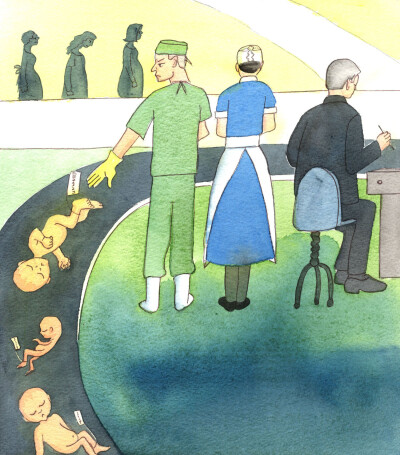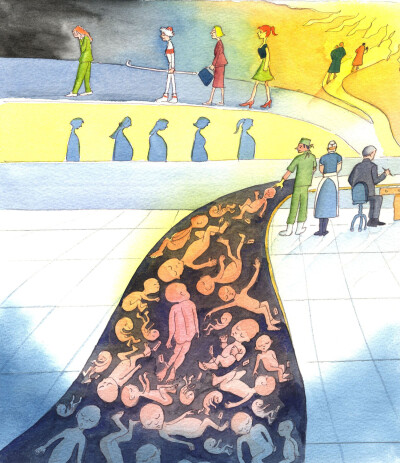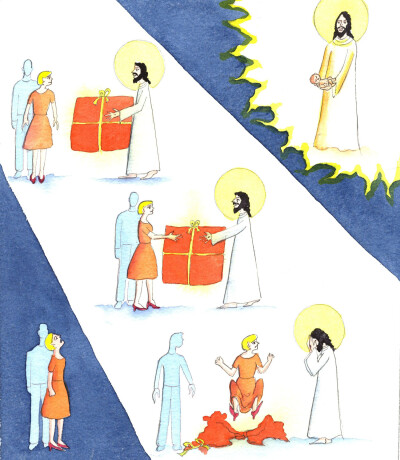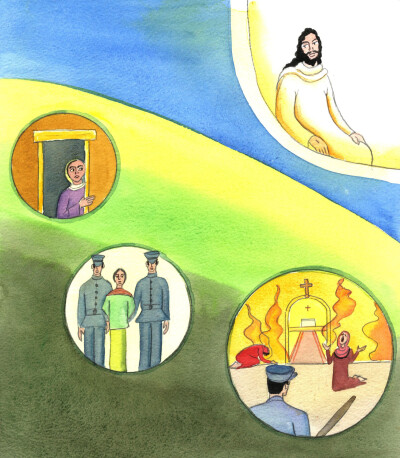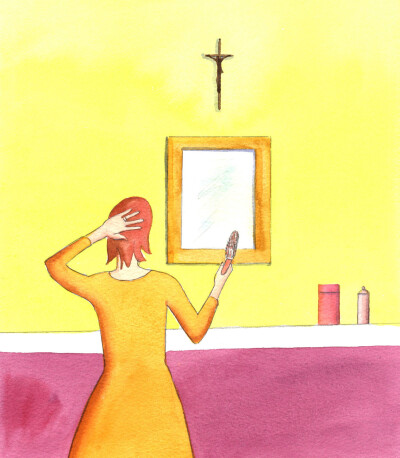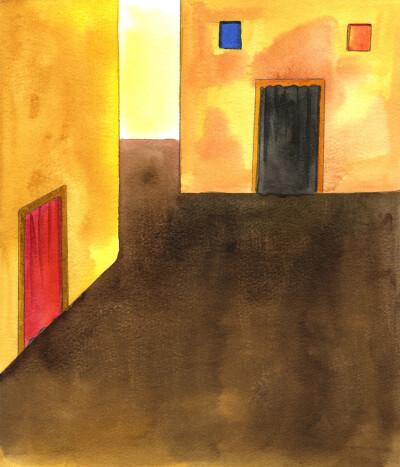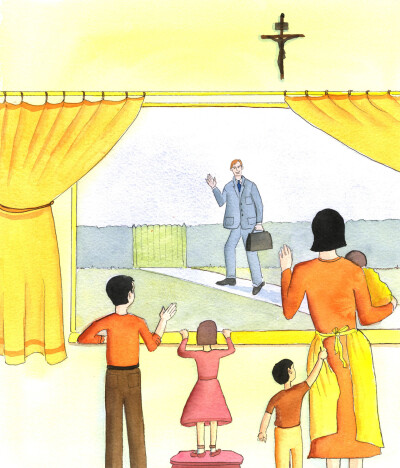Search Page
Showing 61 - 80 of 84
Of all the women moving towards the birth of a child, some are so determined to get rid of the unborn child that they allow surgeons, nurses and GPs to organise or carry out the death-dealing procedure of direct abortion. It's as if each unwanted, unloved baby is then put on a conveyor belt towards a mortuary, a label reading 'unwanted' tied around one ankle.
A queue of women approaches doctors today, many not to request health-care but to request the destruction of their tiny babies before birth. Some women with living babies embrace maternity, as God intends; the others destroy their infants, by allowing others to do so, so that nothing interferes with their hopes for their own life, e.g. of pursuing careers, or fame, or even sport - though some are remorseful.
Christ invites us to reflect upon the wearing of a chapel-veil or headscarf by women in past times, or in other parts of the world today. He wants us to know that it is a valuable, visible sign of reverence and humility, in accordance with Scriptural precept and long-standing custom: a sign which He asks us to persevere in.
Christ gives to many women the greatest gift they could receive from Him (apart from the gift of salvation), the gift of a child. But when a woman refuses the gift of life and asks for her unborn baby to be destroyed within her, it is, in Christ's sight, as if she is not just refusing the gift but also jumping up and down on it, determined to ruin it, whilst Christ looks on.
The Lord sees all the injustice on the earth, including the refusal to allow women to step outside their homes, the unjust imprisonment of those who campaign for free speech, and the cruel persecution of Christians, and the destruction of their churches. The world would be a better place if everyone kept the Ten Commandments.
There exists in the Church widespread ignorance about reverence. It is a cause for sadness when a woman appears in church for the Sacred Liturgy whilst bare-shouldered, and showing no concern for the people who will be distracted by her appearance. She might not be entirely to blame; but in her immodesty she shows little respect for her all-holy Creator to Whom all worship is directed.
Good Christians shine out a light into a troubled world; but there are many places where little or no light can be seen, in Christ's sight: places where many evils, cruelties, tortures, enslavements and acts against helpless women are perpetrated by people who want to remain in power.
Christian women who live and work in the world need not fear they are sinful if they take care of their appearance, and try to look attractive for their husbands. Sensible decisions about clothing and hair care are necessary; it is only vanity and extravagance that are unworthy of people bound for Heaven.
Truthful Catholics know that there is no possibility of corporate union with a Christian group that claims to ordain people to the Priesthood and at present chooses women to receive such 'ordination' - and even proposes to make some of them to be 'Bishops'. This impossibility is obvious; although it is human nature to want to hope, when things are hopeless.
Christ looks down from Heaven, and notices the great silence in the Church, as few women show concern about their own contraceptive use, only a small number defend the Church's teaching on sexual morality, and many clergy are silent on the subject, preferring to preach about other less challenging issues.
Christ wants us to realise that wherever there is suffering and injustice, His love is needed: His love, and respect for all who are generally treated as inferior or even worthless: girls and women, the uneducated or sick or disabled, or people of another race or background. A really just society is one that follows the teachings of Christ. We can ask, as a 'measure' of justice anywhere on earth, 'How are women treated in their families?'
It takes courage to be faithful to Catholic teaching on marriage. What Christ wants to see are many more faithful Catholic women: women who accept God's plan for married life, for example, and who avoid all sinful practices so common in our culture, and who do not neglect their children; women who pursue a career only if their children are genuinely well cared for; women who do not see it as demeaning to serve the family, and to respect their husbands, yet with each spouse respecting the other.
Holiness, by Elizabeth Wang
This text is the complete version of the pamphlet entitled 'SPEAK ABOUT HOLINESS'. It is based on a talk given by Elizabeth Wang.
Preface.
This little book contains the full version of the text I …
What is Mary Like? by Elizabeth Wang
This text is the complete version of the pamphlet WHAT IS MARY LIKE?
“Now having met together; they asked him, ‘Lord, has the time come? Are you going to restore the kingdom to Israel?’ He replied,…
The Purpose of the Priesthood, by Elizabeth Wang
‘The Purpose of the Priesthood contains encouragement and advice for Catholic priests. It reminds them about the central meaning of the Priesthood, and about the need to teach the Catholic Faith in it…
How to Pray: Perseverance, by Elizabeth Wang
This text is published as Chapter 3 of How to Pray (Part One: Foundations), pages 19-30, entitled 'How to Persevere'. An introduction to the life of prayer with much practical advice about how to deep…
How to Pray: Catholic Devotions
This text is published as Chapter 6 of How to Pray (Part One: Foundations). An introduction to the life of prayer with much practical advice about how to deepen your prayer life.
6 ABOUT CATHOLIC …
Autobiography of Elizabeth Wang, Part 1
This text forms part of Elizabeth Wang's Falling in Love: A Spiritual Autobiography (1999). It tells the story of her life and of her spiritual journey as she came to know Christ and His Church.
You …
Autobiography of Elizabeth Wang, Part 2
This text forms part of Elizabeth Wang's Falling in Love: A Spiritual Autobiography (1999). It tells the story of her life and of her spiritual journey as she came to know Christ and His Church.
You …
Autobiography of Elizabeth Wang, Part 3
This text forms part of Elizabeth Wang's Falling in Love: A Spiritual Autobiography (1999). It tells the story of her life and of her spiritual journey as she came to know Christ and His Church.
You …
Showing 61 - 80 of 84

